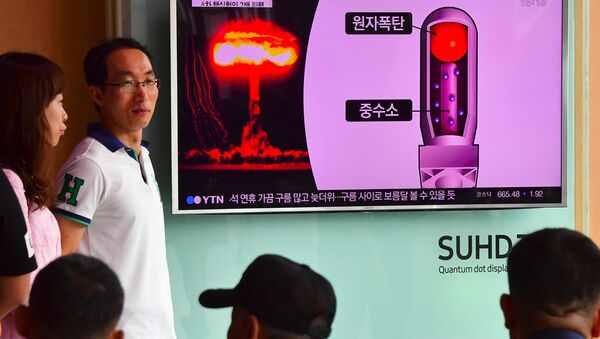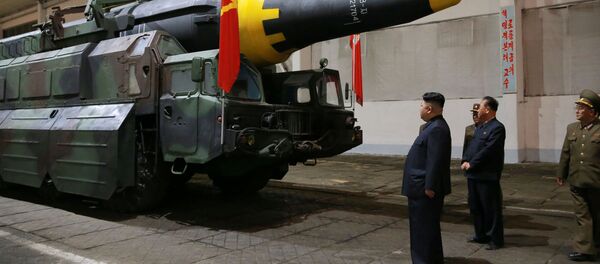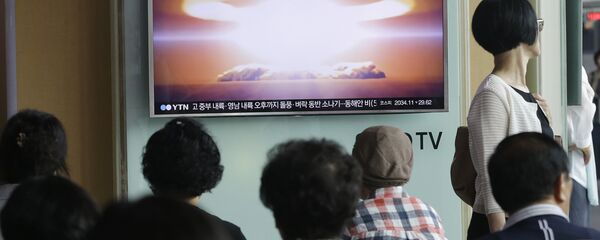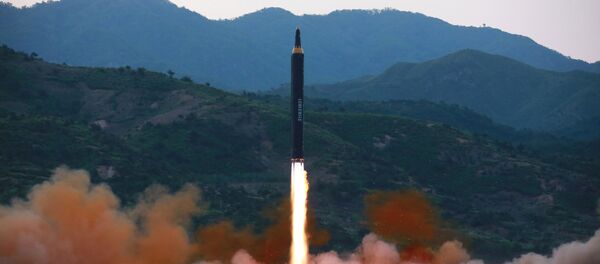A majority of South Koreans support arming the country with nuclear weapons in response to North Korea's development of nuclear weapons.
The North has carried out five nuclear tests, most recently in September 2016. According to the North Korea watchers at the website 38 North, the DPRK's Punggye-ri underground nuclear test site has maintained a high state of readiness since April and could conduct a test on short notice.
It did so in spite of increased sanctions. Last month, the UN Security Council unanimously approved new sanctions on Pyongyang, which ban North Korean exports of coal, iron, iron ore, lead, lead ore and seafood, as well as restricting North Korean migrant workers abroad and joint ventures with North Korean companies.
North Korea's activity has led some in neighboring South Korea to demand nuclear weapons, as a deterrent against a possible nuclear attack.
According to a poll conducted in July, over half of the population supports the idea that the South Korea should possess nuclear weapons.
A lawmaker from the Liberty Korea Party, Yoon Young-seok, explained that South Koreans want to see a better balance of power between the South and the North.
South Korea has the raw materials and equipment to produce a nuclear weapon, and sources there have suggested it would take as little as six to nine months for the country to make a testable nuclear device. In fact, Seoul did pursue a nuclear program for defense and energy purposes for several years in the 1970s.
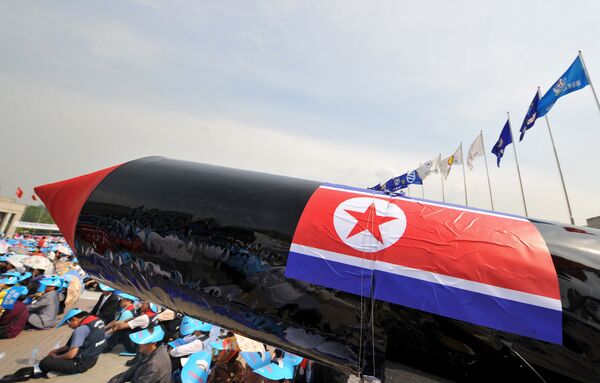
Evgeniy Kim, senior researcher at the Center for Korean Studies at the Russian Academy of Sciences' Institute of Far Eastern Studies told RT that some elements of the South Korean military are keen to deploy US nuclear weapons on South Korean territory as a deterrent, despite the opposition of President Moon Jae-in.
"We already know that the South Korean military can do such a thing behind the president's back, because in May of this year they lied to the newly elected president that they had not six THAAD missile launchers, but two. Some of the South Korean generals have a servile admiration for the Americans," Kim explained.
Prefessor Andrei Lankov of Seoul's Kukmin University told RT that the South Korean leadership also has doubts about whether the US would really come to its aid in the event of a nuclear attack.
"Now, in South Korea there is great concern about whether the country can count on a military alliance with the US, which has been the basis of the entire South Korean military strategy for more than half a century. There are fears that when North Korea gets the opportunity to inflict nuclear strikes on American cities, the Americans will decide not to trade Seoul for San Francisco. They could wash their hands of the issue, and these fears are fully justified," Lankov said.
"The Americans won't let them do it, because if South Korea gets its own nuclear weapons, they won't need the Americans," he explained.
Kim said that mutual de-escalation by South Korea and the US on one hand and North Korea on the other seems to be the best option for resolving the standoff. Russia and China have proposed a plan that would see the US and South Korea stop their joint military drills in the Korean peninsula, in return for the North stopping its missile tests.
"I think that there is only one way out: to sit down at the negotiating table. No sanctions will lead North Korea to stop the development of nuclear weapons. After all, North Korea still produced most of its tests of nuclear weapons and missile launches while under sanctions," Kim pointed out.

